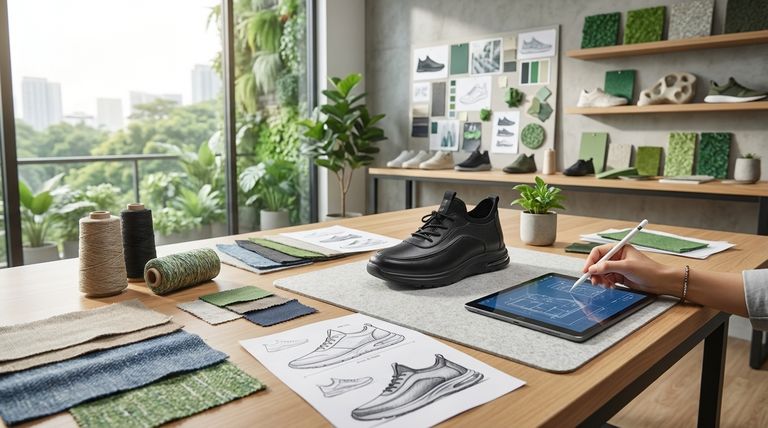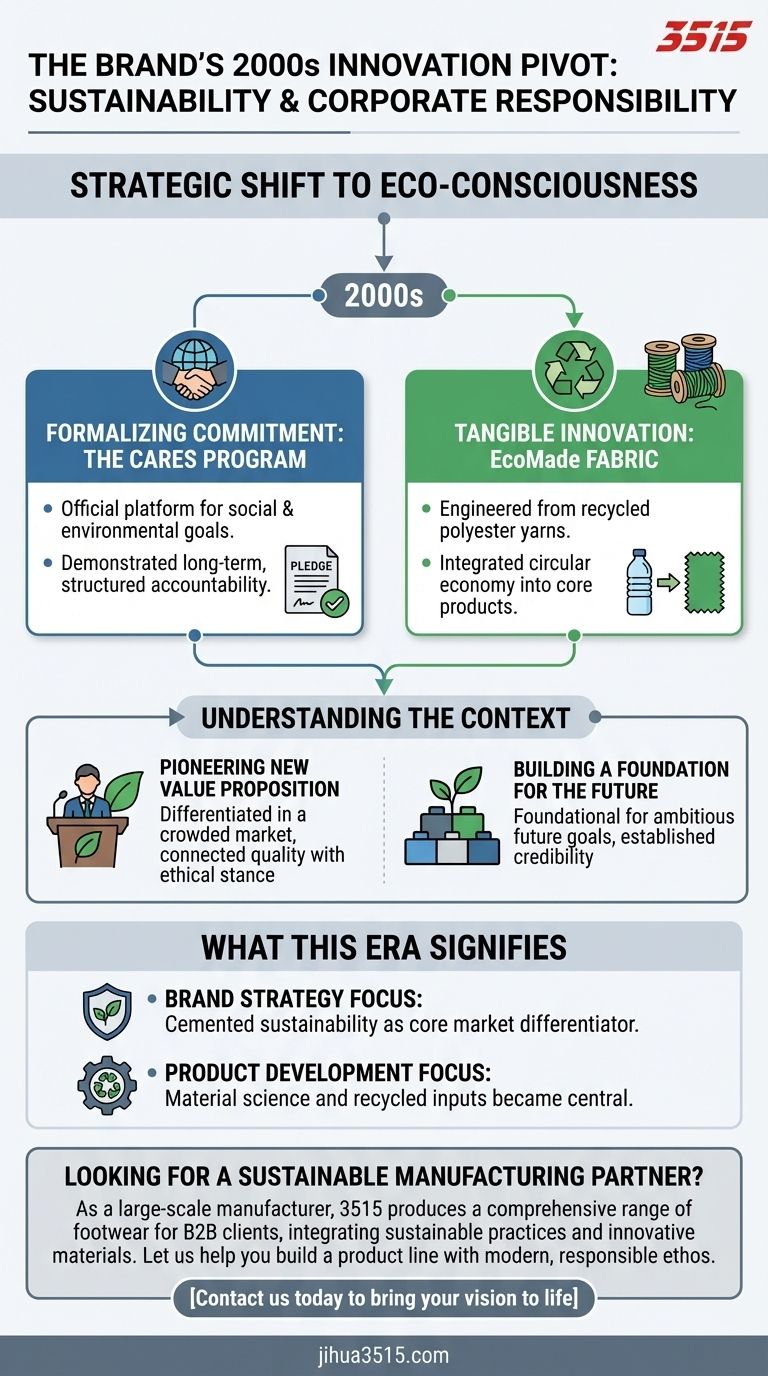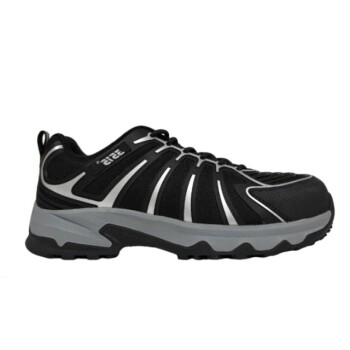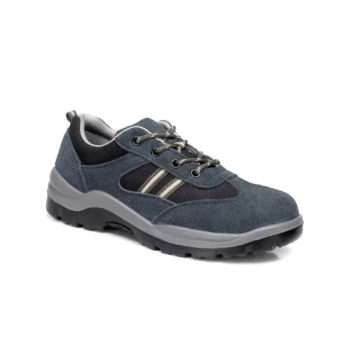In the 2000s, the brand’s innovation was fundamentally characterized by a strategic pivot towards eco-consciousness and corporate responsibility. This decade saw the company move beyond traditional product development to embed sustainability into its core identity, launching both formal programs and tangible, eco-friendly materials to signal this new direction.
The key takeaway is that the innovations of this era were not isolated events. They represented a deliberate effort to redefine the brand's values, making environmental stewardship a central pillar of its market strategy and product engineering.

The Strategic Shift to Sustainability
The moves made during the 2000s were foundational, establishing a new trajectory for the brand. This wasn't just about a single product; it was about building an entire framework for responsible business practices.
Formalizing the Commitment: The Cares Program
The formal launch of the Cares program marked a significant step. It translated an internal ethos into a public, accountable commitment to social and environmental goals.
This program served as an official platform, demonstrating to consumers and the industry that the brand's focus on sustainability was a long-term, structured initiative.
Tangible Innovation: The EcoMade Fabric
To give this commitment a physical form, the brand introduced EcoMade fabric. This material was a direct result of its new focus on the circular economy.
By engineering a fabric from recycled polyester yarns, the company proved that sustainable materials could be integrated directly into its core product lines, offering a concrete benefit to environmentally-minded consumers.
Understanding the Context of This Shift
Adopting a sustainability focus in the 2000s was a forward-thinking move. It positioned the brand not as a follower, but as a proactive leader in a growing movement.
Pioneering a New Value Proposition
At the time, "eco-friendly" was not the universal expectation it is today. By investing in this area, the brand differentiated itself in a crowded marketplace.
This created a powerful narrative that connected the product's quality with the company's ethical stance, appealing to a new segment of consumers.
Building a Foundation for the Future
The Cares program and EcoMade fabric were not end-points. They were the foundational building blocks for all subsequent sustainability efforts.
These early innovations established the credibility and internal expertise needed to pursue more ambitious environmental goals in the decades that followed.
What This Innovation Era Signifies
Understanding this period is key to understanding the brand's modern identity. The choices made then continue to shape its strategy and public perception today.
- If your primary focus is brand strategy: View the 2000s as the decade the brand cemented sustainability as its core market differentiator.
- If your primary focus is product development: Recognize this period as the point when material science and recycled inputs became central to its innovation pipeline.
Ultimately, the innovations of the 2000s were about weaving purpose directly into the fabric of the company.
Summary Table:
| Key Innovation | Description | Strategic Impact |
|---|---|---|
| Cares Program | Formalized commitment to social and environmental goals. | Established a public framework for long-term, accountable sustainability. |
| EcoMade Fabric | Engineered from recycled polyester yarns. | Integrated circular economy principles directly into core product lines. |
| Overall Strategy | Shifted focus to eco-consciousness and corporate responsibility. | Redefined the brand's values and created a powerful market differentiator. |
Looking for a manufacturing partner that aligns with your brand's values?
As a large-scale manufacturer, 3515 produces a comprehensive range of footwear for distributors, brand owners, and bulk clients. Our production capabilities encompass all types of shoes and boots, and we are committed to integrating sustainable practices and innovative materials into our processes. Let us help you build a product line that reflects a modern, responsible ethos.
Contact us today to discuss how we can bring your vision to life.
Visual Guide

Related Products
- Custom Manufactured Air Cushion Leather Business Shoes for Wholesale
- Durable Rubber-Soled Utility Shoes for Wholesale & Custom Brand Manufacturing
- Wholesale Comfortable Business Casual Shoes Custom Manufacturing
- Premium Wholesale Tactical Style Safety Shoes Boots with Quick Lacing
- Premium Wholesale Wheat Nubuck Safety Boot with Rapid Lacing System
People Also Ask
- What are the functional benefits of molded replaceable orthotic insoles? Enhance Arch Support and Reduce Foot Fatigue
- What are the advantages of oxidized edible oils in BC leather? Achieve 2x More Strength Than Traditional Animal Leather
- What role do plantar pressure sensors play in fall risk assessment? Expert Insights for Elderly Gait Analysis
- What role do Focus Group Discussions (FGD) play in footwear overconsumption scales? Unlocking Consumer Insights
- How does the use of a high-pressure spray gun benefit nano-coatings on leather? Master Deep Pore Integration.
- How can one maintain the waterproofing of leather boots? A 3-Step Guide to Lasting Protection
- Why are high-precision force sensors necessary for evaluating gait traction force? Unlock Micro-Level Friction Insights
- What are the stages of neoprene product manufacturing? From Sponge to Finished Product



















